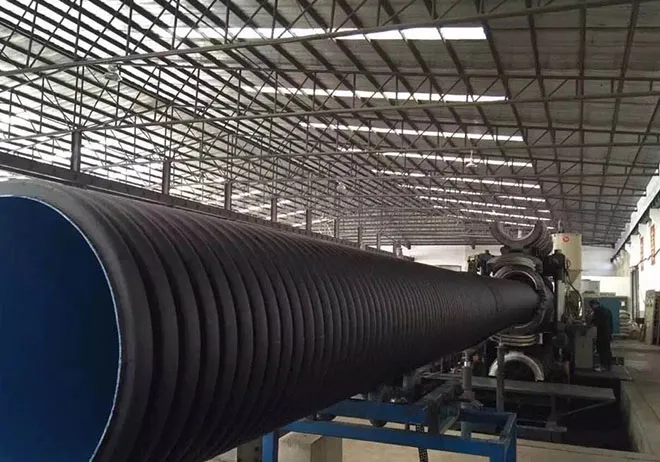Sep . 23, 2024 20:31 Back to list
China's Growing Market for Underground PVC Pipe Solutions and Innovations
An Overview of China’s Underground PVC Pipe Industry
In recent years, China has emerged as a global leader in the manufacturing and export of various types of plastic products, including PVC pipes. Among those, underground PVC pipes have gained significant attention due to their essential role in drainage systems, water supply, irrigation, and sewage management. This article explores the significance of underground PVC pipes, the manufacturing processes in China, market dynamics, and their advantages over traditional materials.
Importance of Underground PVC Pipes
Underground PVC pipes are vital for modern infrastructure projects. Their application ranges from municipal water systems to agricultural irrigation and industrial setups. These pipes are designed to transport fluids efficiently and can be used in various settings, including residential, commercial, and agricultural sectors. With urbanization on the rise, the demand for efficient drainage and piping systems has only grown, making PVC pipes an increasingly popular choice.
One of the main reasons for the preference of PVC pipes is their excellent resistance to corrosion, which is a common problem in traditional materials such as metal and clay. PVC pipes are also lightweight, making them easy to transport and install, which is particularly beneficial for large-scale projects.
Manufacturing Processes in China
China's underground PVC pipe industry is characterized by advanced manufacturing technologies and stringent quality control measures. The production process typically involves the polymerization of vinyl chloride monomer (VCM) to produce PVC resin. This resin is then mixed with additives to enhance its durability, flexibility, and performance.
The manufacturing process includes several key steps
1. Preparation of Raw Materials High-quality PVC resin is chosen, along with various additives that enhance the mechanical properties of the pipes.
2. Extrusion The prepared mixture is fed into an extruder where it is heated and formed into a continuous pipe. The extrusion process allows for precise control over the dimensions and wall thickness of the pipes.
3. Cooling and Cutting After extrusion, the pipes are cooled in a water bath, then cut into specified lengths for packaging and distribution.
china underground pvc pipe

4. Quality Control Rigorous testing is conducted to ensure the pipes meet international standards. This includes pressure testing, dimensional checks, and assessments for defects.
5. Packaging and Distribution Once the pipes pass quality inspections, they are packaged and sent to various markets, both domestically and internationally.
Market Dynamics
The underground PVC pipe market in China is continuously evolving. As one of the largest producers globally, China accounts for a substantial share of international PVC pipe exports. The country's investments in infrastructure development, such as transportation, water management, and urban planning, have significantly boosted demand for PVC pipes.
Moreover, the global push for sustainable development has led to increased emphasis on using environmentally friendly materials. PVC pipes are recyclable, and advancements in technology have made the manufacturing process more energy-efficient, aligning with these sustainability goals.
Advantages Over Traditional Materials
The advantages of PVC pipes over traditional materials are numerous. Firstly, their resistance to chemical and biological corrosion extends their lifespan significantly. This durability translates to lower maintenance costs and reduced need for frequent replacements. Additionally, the lightweight nature of PVC makes handling and installation quicker and more cost-effective.
Furthermore, PVC pipes are resistant to scale and incrustation, which ensures a smooth internal surface that enhances flow efficiency. This characteristic is particularly crucial in drainage and sewage systems where blockages can lead to significant operational disruptions.
Conclusion
The underground PVC pipe industry in China is a testament to the country's manufacturing prowess and its response to modern infrastructure needs. As urbanization continues to grow and sustainability becomes more paramount, the demand for high-quality, durable, and cost-effective solutions like PVC pipes will undoubtedly increase. For contractors and project managers, investing in underground PVC piping systems represents a commitment to efficiency, reliability, and future-proofing infrastructure. With ongoing innovations and improvements in the industry, the future of underground PVC pipes in China looks promising.
-
High-Quality PVC Borehole Pipes Durable & Versatile Pipe Solutions
NewsJul.08,2025
-
High-Quality PVC Perforated Pipes for Efficient Drainage Leading Manufacturers & Factories
NewsJul.08,2025
-
High-Quality PVC Borehole Pipes Durable Pipe Solutions by Leading Manufacturer
NewsJul.08,2025
-
High-Quality PVC Borehole Pipes Reliable PVC Pipe Manufacturer Solutions
NewsJul.07,2025
-
High-Quality UPVC Drain Pipes Durable HDPE & Drain Pipe Solutions
NewsJul.07,2025
-
High-Quality Conduit Pipes & HDPE Conduit Fittings Manufacturer Reliable Factory Supply
NewsJul.06,2025

